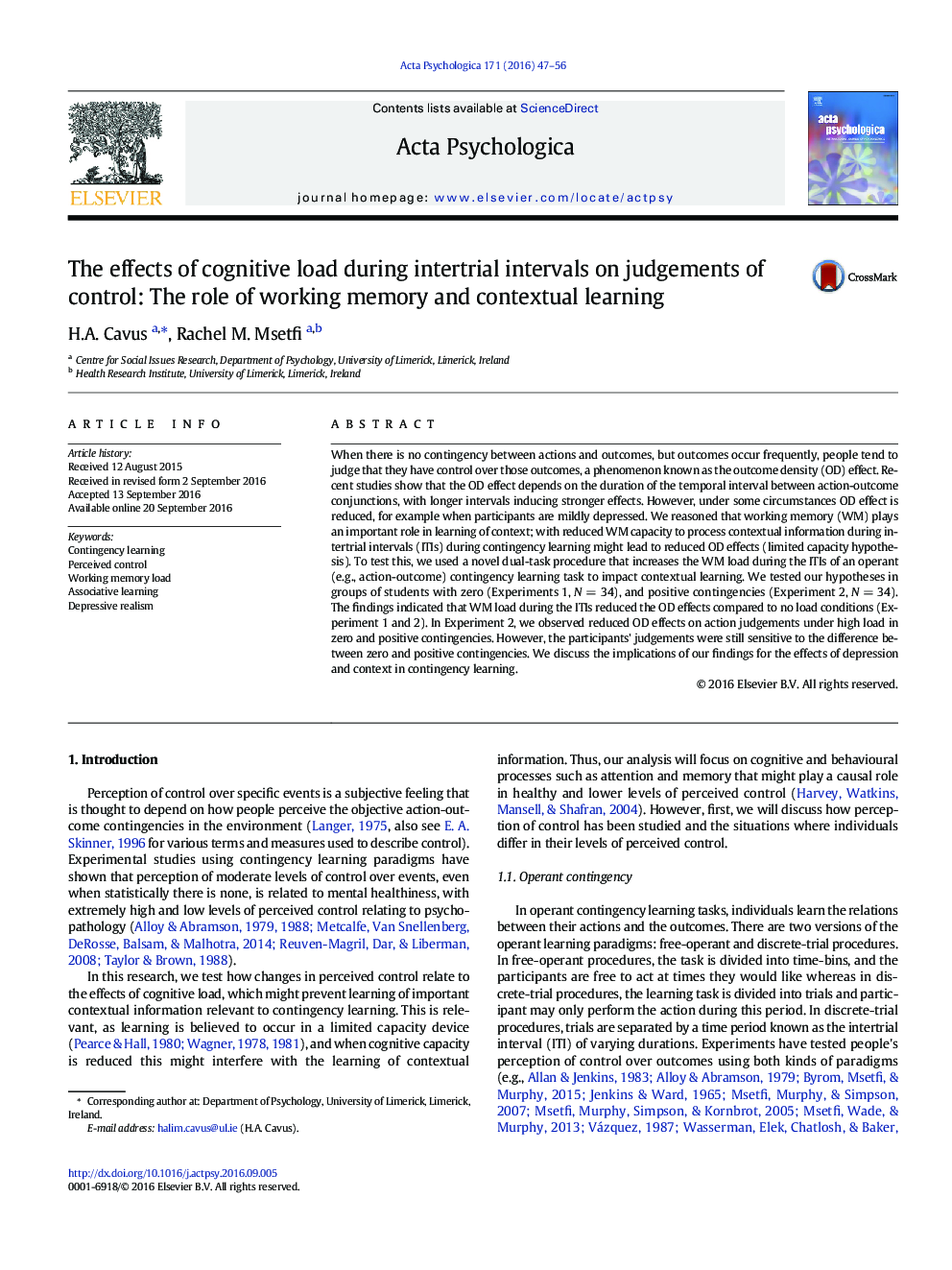| Article ID | Journal | Published Year | Pages | File Type |
|---|---|---|---|---|
| 5040279 | Acta Psychologica | 2016 | 10 Pages |
â¢Cognitive load might impact outcome density effects on perceived control.â¢Outcome density effects are hypothesised to relate contextual learning.â¢Outcome density effects on perceived control were reduced under high load.â¢Contextual learning might underlie depressive realism effect.
When there is no contingency between actions and outcomes, but outcomes occur frequently, people tend to judge that they have control over those outcomes, a phenomenon known as the outcome density (OD) effect. Recent studies show that the OD effect depends on the duration of the temporal interval between action-outcome conjunctions, with longer intervals inducing stronger effects. However, under some circumstances OD effect is reduced, for example when participants are mildly depressed. We reasoned that working memory (WM) plays an important role in learning of context; with reduced WM capacity to process contextual information during intertrial intervals (ITIs) during contingency learning might lead to reduced OD effects (limited capacity hypothesis). To test this, we used a novel dual-task procedure that increases the WM load during the ITIs of an operant (e.g., action-outcome) contingency learning task to impact contextual learning. We tested our hypotheses in groups of students with zero (Experiments 1, NÂ =Â 34), and positive contingencies (Experiment 2, NÂ =Â 34). The findings indicated that WM load during the ITIs reduced the OD effects compared to no load conditions (Experiment 1 and 2). In Experiment 2, we observed reduced OD effects on action judgements under high load in zero and positive contingencies. However, the participants' judgements were still sensitive to the difference between zero and positive contingencies. We discuss the implications of our findings for the effects of depression and context in contingency learning.
